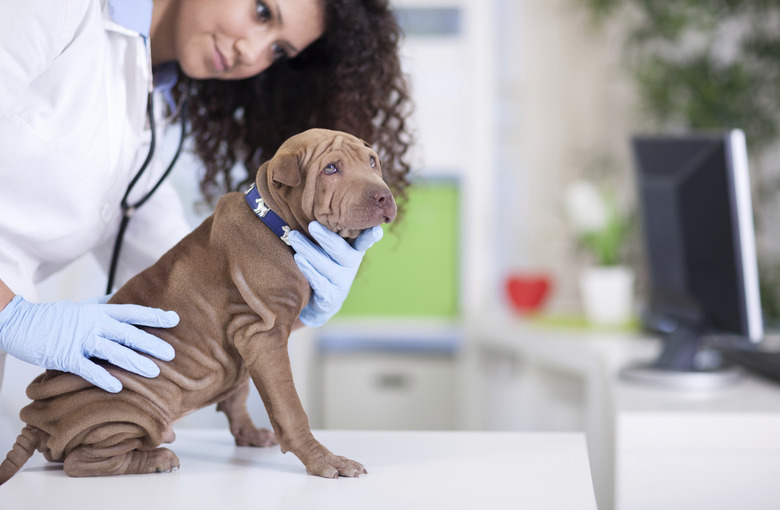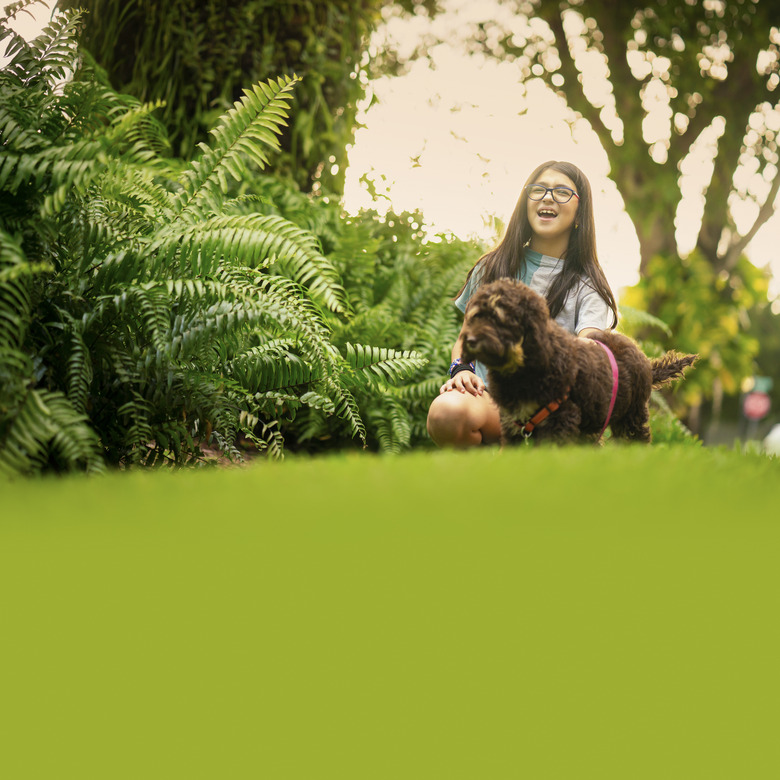Mupirocin For Dogs: Uses And Side Effects
If your dog is diagnosed with a serious bacterial skin infection, your veterinarian might prescribe mupirocin 2 percent ointment to treat it. Mupirocin, manufactured by Taro Pharmaceuticals, is the generic version of Muricin ointment, manufactured by Dechra. Learn more about what to expect when using mupirocin.
What is mupirocin for dogs?
What is mupirocin for dogs?
Mupirocin ointment is FDA-approved for canine dermatologic use. It contains a broad-spectrum antibiotic in a water-washable base that contains polyethylene glycol. This antibiotic ointment is only available by prescription, so you can't buy it over the counter. It is applied topically to a dog's skin to treat infections caused by certain strains of bacteria. By targeting the bacteria, this medicine can help eliminate infection. Mupirocin ointment for dogs is not for use on cats or other animals.
What does mupirocin ointment do for dogs?
What does mupirocin ointment do for dogs?
Mupirocin ointment helps eradicate certain canine dermatological bacterial infections. Your veterinarian might prescribe the drug for infections like superficial pyoderma, which causes lesions that look like pimples and are filled with pus. This ointment is not prescribed for severe burns, puncture wounds, or deep wounds or lesions.
Mupirocin is effective against:
- Staphylococcus strains, including Staphylococcus intermedius and Staphylococcus aureus
- Strains of Streptococci
- E. coli
- Pasteurella multocida
- Klebsiella pneumoniae
- Enterobacter cloacae
Sometimes, veterinarian will take a skin culture to determine the type of bacterial infection before prescribing ointment. Doing so will help confirm if the appropriate medicine. However, since superficial pyoderma is usually caused by the bacteria that mupirocin treats, a culture isn't usually done in this case. Cultures are usually performed in chronic or recurring infections and in deep pyoderma cases.
How to apply mupirocin ointment to dogs
How to apply mupirocin ointment to dogs
Your veterinarian will give you instructions on how to administer mupirocin. Remember that this product should only be used topically (applied to the skin), so it should not go into your pet's nose, mouth, or eyes.
Before applying the ointment, wash your hands. Then, gently and thoroughly clean the infected area with a cleanser recommended or prescribed by your veterinarian. Dry the skin and apply the product only according to your veterinarian's directions.
You may need to apply it carefully to your dog's skin two times daily for several days. However, treatment with this ointment shouldn't last longer than 30 days. Be sure to follow your veterinarian's instructions regarding the duration of treatment even if your dog's symptoms subside.
The entire area of infection should be covered with the ointment, but you may only need to use a small amount for each application. You can use a gauze pad or a cotton swab so you don't have to use your finger.
Read the label carefully to ensure you store the medication properly between uses (i.e., at room temperature).
Mupirocin for dogs precautions and contraindications
Mupirocin for dogs precautions and contraindications
Talk to your veterinarian about potential side effects so you will know what to look for. If your pet experiences any adverse reactions, let your veterinarian know, as you might need to discontinue use of this ointment.
Possible mupirocin ointment side effects include:
- Itching
- Burning
- Stinging
- Pain
- Irritation
If your dog develops a skin rash or any type of allergic reaction, such as hives, stop using the medication and inform your veterinarian.
Because of the polyethylene glycol content, using the drug in a deep wound could potentially cause nephrotoxicity (kidney damage). Your veterinarian will monitor your dog's kidney function if your pet receives large amounts of mupirocin ointment for a deep infection.
Your dog should not be able to reach areas treated with mupirocin. They must wear an Elizabethan collar, or the affected area must be securely bandaged. If your dog consumes the ointment, call your veterinarian.
Pregnant or breeding dogs should not receive this drug. This prescription medication should only be used on the skin. It is not intended for treating canine eye infections.
The bottom line
The bottom line
Mupirocin ointment is also sold under the brand name Muricin. It is useful in treating certain bacterial skin infections in dogs because it can stop the growth of various types of bacteria so healing can take place. Plus, it is easy to use and has few side effects. Follow your veterinarian's directions to ensure the best and safest results when applying this topical product to your canine's skin. Also keep in mind that it is only appropriate for dogs, so you should not use mupirocin on any other animals.


